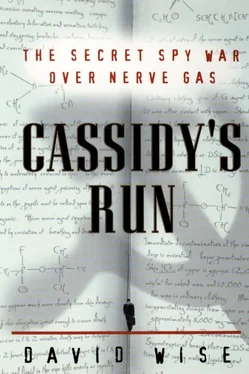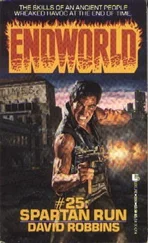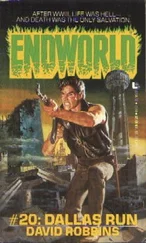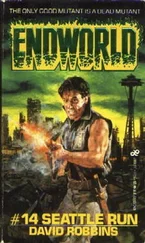Lopez broke the news to Flores, though he did not realize, of course, that his good friend already knew it.
“I said, ‘Great, good luck.’Then I said, ‘I’m not that happy here myself.’” Flores had previously mentioned to Lopez that he had grown up in Texas. “He said, ‘Maybe you need a change. Maybe you should transfer, too. I’ll call you when I get over there.’ So when he called, I said, ‘I’ve been thinking about it, and I’ve decided to go over there, too.’”
Flores applied on his own to the University of Texas and again was accepted as a graduate student in geography. He moved to Austin in 1972.
The FBI had no difficulty gaining access to the duplex the PALMETTOS rented in Austin. “While I was still in Salt Lake,” Flores said, “Gilberto sent me a key to his place in Austin.”
For the dropon the night of Saturday, April 1, 1972, Cassidy had selected and Danilin had agreed to a site in central St. Petersburg, a popular trysting place bordered by Straub Park and the North Yacht Basin. The FBI took up positions nearby, ready to photograph whoever appeared. At 9 P.M., Cassidy placed his rock at the base of a metal pole of a street sign at the intersection of Bay Shore Drive Northeast and Fifth Avenue Northeast.
Inside were films of seven documents stamped SECRET, and others marked with the lower classifications of CONFIDENTIAL and FOR OFFICIAL USE ONLY. One of the documents labeled SECRET, dated December 23, 1971, again related to the pullout of American forces from Vietnam and was entitled “Letter of Instruction for the Tenth Incremental Redeployment of U.S. Army Forces from RVN.”
The pickup proved to be another family affair. At 9:20 P.M., FBI agents spotted Gilberto Lopez and his wife walking near the drop site. Lopez was carrying his son in a backpack. They stopped at the street sign, and Alicia Lopez put down a black-and-white-striped plastic shopping bag.
Looking like an ordinary couple fussing with their baby carrier, Alicia helped take the backpack from Gilberto. He then kneeled as though adjusting the backpack, and as he did so he reached down, picked up the hollow rock, and slipped it into the shopping bag. Then he helped arrange the carrier on Alicia’s back. They walked off, Gilberto smiling and carrying the plastic bag. To any passersby, the episode would have looked innocuous. The FBI captured the whole scene on film.
Mission accomplished, the Lopezes returned to their downtown hotel, the Sorrento, for the night. But Lopez, despite the smooth performance, had a touch of television’s Maxwell Smart in his spying activities. Once again, he forgot to leave the troublesome paper bag. At 9:52 P.M., he returned to the drop site and remedied his error.
The next day dawned warm, and O’Flaherty spent most of his Easter Sunday morning in a stiflingly hot panel truck, watching the hotel. The Lopezes left, and O’Flaherty followed them to the train station.
“They got on a train to Washington. I gave the ticket agent a hundred dollars in exchange for the bills they gave the ticket taker, as evidence, in case we could trace the serial numbers. We assumed he was on his way to make his drop to Danilin.”
When Lopez returned to Salt Lake City, the FBI learned he was planning to take a brief trip to Mexico. “There was some indication he might clear a drop on the way,” Schamay said. “In May, we mounted a massive surveillance which started in Salt Lake. We used planes, campers, motorcycles. He drove into Arizona and then through New Mexico. We used a lot of people. We had people at all the exits from the city. First to pick him up leaving was the motorcycle, a special agent dressed like a typical biker. We had other FBI men dressed like cowboys.”
To avoid detection, the bureau switched vehicles and people. “The motorcycle went into a pickup truck, then, when day light came, we used the airplane.” The surveillance ended at El Paso, as Lopez crossed the border into Mexico. But the results of the enormous surveillance were disappointing to the FBI.“We never saw him do anything,” Schamay said.
In July, Cassidy traveled to Washington once more to meet with Danilin in Springfield. In the hollow rock at the pickup site, Cassidy received twelve thousand dollars and new rollover cameras, photographic equipment, and film. Concealed in the rock as well were capsules containing the same organic chemical compound that was in the special pencil lead that Cassidy had struggled to crush. The capsules, the Soviets hoped, would prove easier to dissolve in water.
At their meeting, Danilin pressed Cassidy to provide more TOP SECRET documents, especially “like you gave last September.” But, all in all, from the Soviet point of view, matters were progressing smoothly; there had now been four successful drops in Florida, the secret documents were flowing, and, through Cassidy, Moscow had achieved another intelligence coup. It had penetrated a vital American military center, the United States Strike Command.
When the PALMETTOSwent to Austin, the FBI moved its entire surveillance operation. Even before the Lopezes arrived in Austin, the FBI had cased the house they had rented. The couple was moving into one half of a duplex. The bureau discovered that there was a crawl space over both sides of the duplex. Carroll T. Allen, an FBI technical expert at headquarters, was dispatched from Washington to install video cameras in the crawl space and prepare the house electronically before the PALMETTOS moved in. The rooms were bugged, the telephones tapped.
Allen worked in the hot, cramped crawl space of the duplex to install the miniature concealed cameras, which were so small that they operated through two tiny pinholes drilled into the ceiling. “They put in two video cameras,” Charlie Bevels said, “one over the top of his [Lopez’s] desk, and one from the side.”
The sophisticated cameras worked, allowing the FBI to watch the Lopezes inside their home. “Lopez had a secret cache where he kept his espionage paraphernalia, microdot reader, and other material,” Bevels said. “So we could see him on video taking out his materials.”
The video camera sent back live pictures to a duplex the FBI had rented about five hundred yards away, where the bureau’s technicians had all of their equipment. Through the video, the FBI watched Lopez put on a headset and listen to radio signals. The National Security Agency (NSA), the nation’s global electronic-eavesdropping arm, had been picking up the encoded signals for a long time but had not known to whom they were being sent.
Then Lopez made a grievous operational error. A former senior FBI official familiar with the case explained what happened. “He took off a headset to say something to his wife, and we heard five-digit coded roadcasts from Moscow or Havana coming through the headset. And we were able to match them with the shortwave broadcasts we had suspected were directed to him. If he had never taken the headset off, we never could have confirmed it.”
The headset figured in another incident that took place when Flores was baby-sitting for Lopez’s son, Nayar. What happened proved that even the most careful spy cannot protect himself against the unexpected. “One time I had the TV on at my apartment,” Flores recounted, “watching a war movie, just Nayar, my son, and myself, in the middle of the afternoon. Gilberto’s little boy didn’t talk much. In the movie, a ship was sinking, a torpedo hit it or something, and a radioman puts on a headset and starts sending an SOS. The little boy jumps up, runs to the TV, points at it, and says, ‘Papa, Papa!’”
When the Lopezes left Austin for two weeks on a trip, the FBI entered the duplex and removed his shortwave radio, which was of East German make. The radio was sent to headquarters, taken apart, and analyzed. “We got back in before he returned and it would be missed,” Flores recalled. “So we knew what frequencies he would receive. Later, the Soviets modified the radio and made it digital. We could not hear the signals, but we were getting them from NSA. Our equipment read it as good as his did.”
Читать дальше












